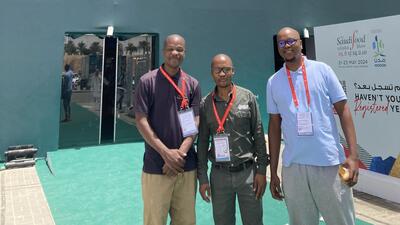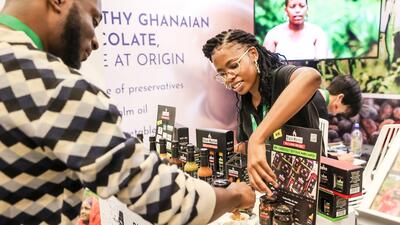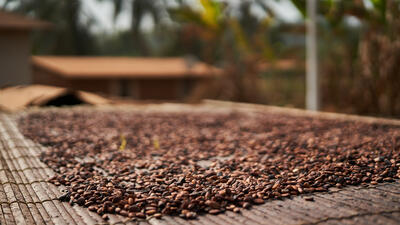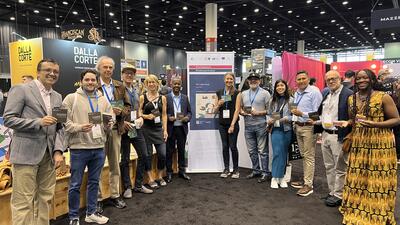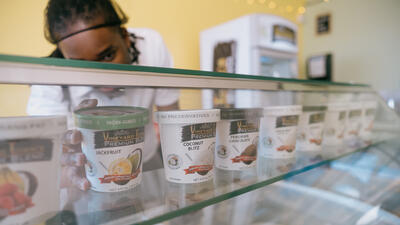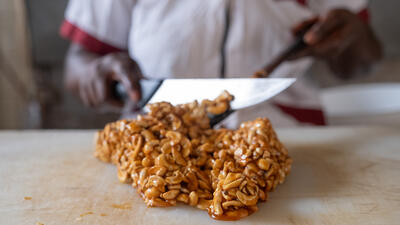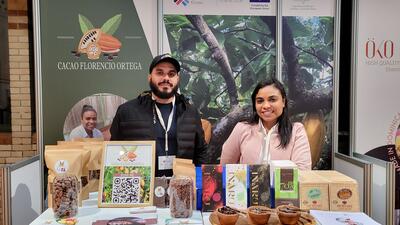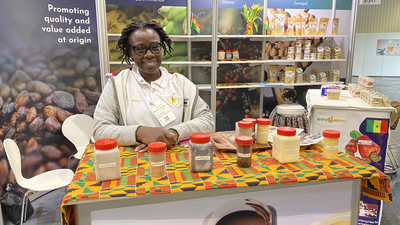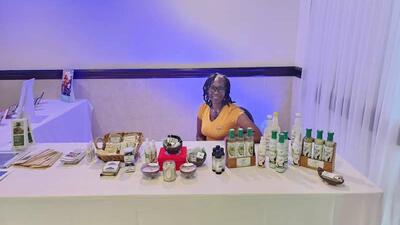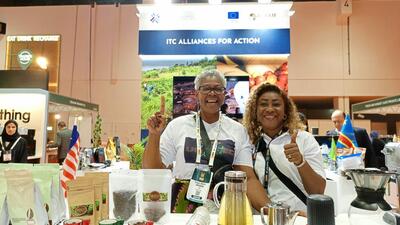

Creating a sustainable coconut industry in the Caribbean
A five-day event looks at how to grow the industry through sustainable farming, commercialization and agro-processing.
Strengthening the Caribbean coconut value chain. Next stop: Jamaica
The Regional Coconut Workshop, which kicked off on 4 March in Kingston, takes place against the backdrop of Phase 2 of a regional coconut project called: Alliances for Coconut Industry Development, Expansion, and Enhanced Support.
In Jamaica, the project works with smallholder farmers and small businesses to bring the country closer to the goals of its National Coconut Sector Roadmap. So far 5,000 farmers and small businesses have worked with the project throughout the Caribbean.
ITC Executive Director Pamela Coke-Hamilton highlighted how bottom-up approaches like ITC’s Alliances for Action foster innovative and sustainable production and business practices.
She put a spotlight on small businesses and underscored the importance of partnerships for the successful implementation of the project:
‘In the decade since the SIDS (Small Island Developing States) conference last convened, the small businesses that are the Caribbean’s pride and promise have seen their resilience tested repeatedly. They’ve walked a tough road. But they’ve also shown us what the way forward can look like. And that’s through partnerships, as we’ve seen in action through our work under this project.’
The project is supported by the EU and the Caribbean Forum (CARIFORUM) Secretariat. It’s implemented by ITC, the Caribbean Agricultural Research and Development Institute (CARDI), the Coconut Industry Board (CIB), key government agencies and business groups.
Aniceto Rodriguez Ruiz, Head of Cooperation at the EU Delegation in Kingston, iterated the EU’s dedication towards building a resilient and sustainable coconut industry in the Caribbean and its appreciation for the partnerships enabling that.
The Coconut Industry Board in Jamaica, renowned for its significant contributions to coconut research and extension, played a pivotal role in leading technical sessions. Establishing coconut seed gardens, hybridization techniques, and climate-smart production practices were explored, providing valuable insights and hands-on experience.
Other key speakers included Hon. Minister Floyd O'Brien Green, Minister of Agriculture, Fisheries and Mining, Jamaica; Christopher Gentles, Chairman, Coconut Industry Board; Shaun Cameron, General Manager of the Coconut Industry Board; Ansari Hosein, Executive Director of CARDI; and Dr Wayne Myrie Plant Pathologist/Molecular Biologist, Alliances for Coconuts Project National and Regional Coordinator, Coconut Industry Board.
Twelve CARIFORUM countries, including Jamaica, are actively participating in the regional coconut project. The collaborative efforts underscore a shared commitment to fostering resilience and sustainability in the Caribbean coconut industry.
About the project
The International Trade Centre’s Alliances for Action, the Caribbean Agricultural Research and Development Institute (CARDI) and important regional and national partners have been working since 2015 to facilitate alliances among actors at every step of the Caribbean coconut value chain through the Caribbean: Development of value added products and intra-regional trade to enhance livelihoods from coconuts CARIFORUM programme funded by the European Union.
Sustainable agriculture and processing practices, value addition and commercial alliances are some of the key tools leveraged. The goal of the project is to increase food availability and incomes of small-scale farmers through improved competitiveness of the coconut sector.




